8th National Forum on Integrated Design Foundation Teaching in Colleges and Universities Successfully Held

From December 21 to 22, 2024, the 8th National Forum on Integrated Design Foundation Teaching in Colleges and Universities was grandly held at Tsinghua (Qingdao) Academy of Arts and Science Innovation Research (TASA), with the theme of Focusing on Process. It was co-hosted by the Expert Working Committee of China Industrial Design Association and TASA, and organized by the Design Strategy and Prototype Innovation Research Institute, Art & Science Research Center, Tsinghua University. This offline forum brought together numerous educational elites.
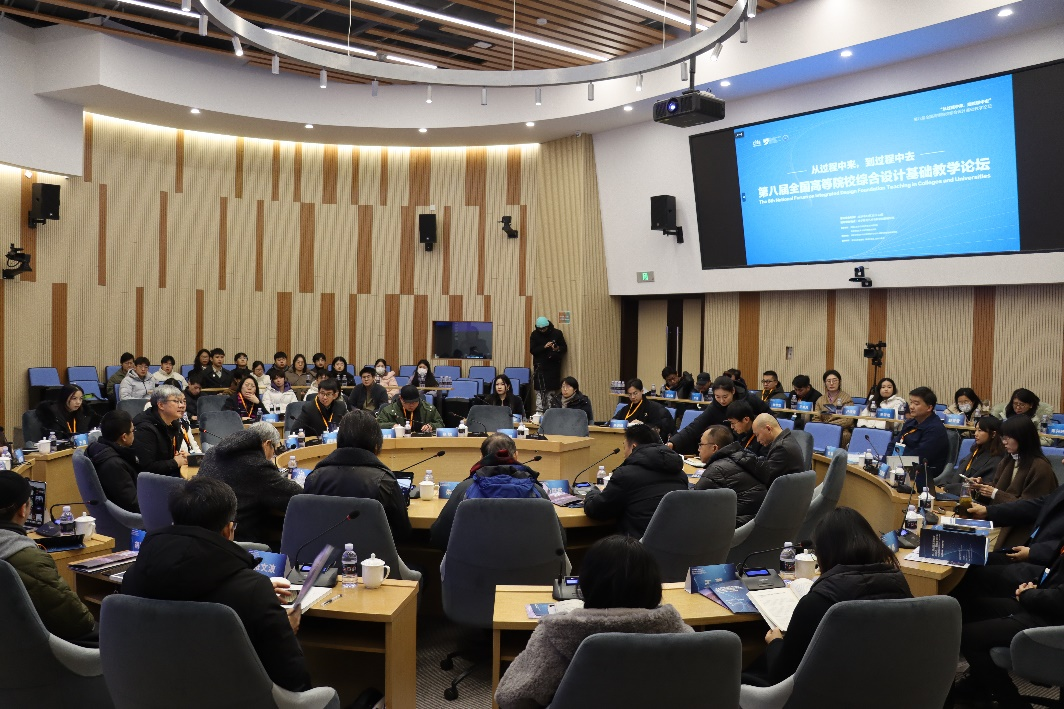
Since its launch in 2011, the Forum has secured a good reputation and wide influence in the field of design education in colleges and universities nationwide, thanks to its professionalism and foresight. Based on gaining previous experience, this session emphasized more on the importance of innovation and practice, attracting the active participation of experts and scholars in the field of education as well as front-line teachers from colleges and universities all over the country. At this Forum, the participating experts, scholars, and front-line teachers from various universities in China had more extensive and profound backgrounds, making the discussions on design foundation teaching more in line with the needs and development trends of the current era. The in-depth discussion at the Forum aims to promote the innovation and development of design foundation education and contribute to the cultivation of more outstanding design talents.
As the co-host of the event, TASA, leveraging Tsinghua University's disciplinary resources, is committed to promoting the interdisciplinary integration of art and science, which further strengthens the Forum's academic depth and practical breadth. The Forum provided participants with a platform for exchange and cooperation, discussing and solving key issues in design education, and fostering innovative design talents meeting the future needs of social and industrial development.
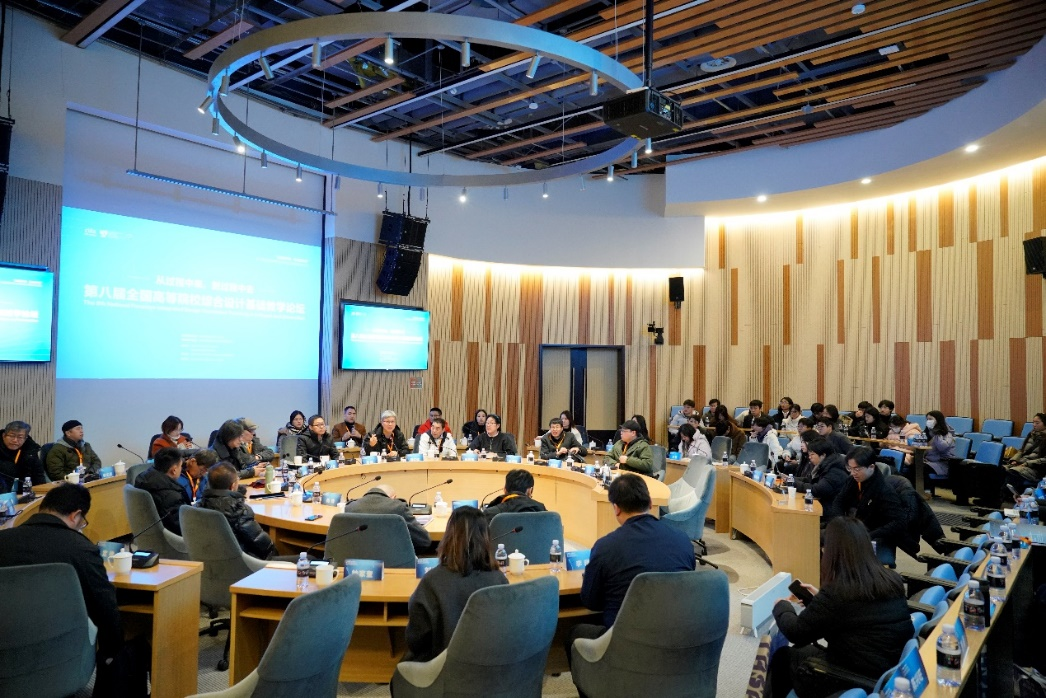
This Forum gathered many elites, including ZHAO Chao, Vice Dean and Professor of Academy of Arts & Design, Tsinghua University, and Vice President of TASA; YAN Yang, Professor of Academy of Arts & Design, Tsinghua University; MA Chundong, Professor of Dalian Minzu University; ZONG Mingming, Dean of School of Design and Arts, Beijing Institute of Technology, Zhuhai; JIANG Hongbin, Director of Design Strategy and Prototype Innovation Research Institute, Art & Science Research Center, Tsinghua University; ZHU Zhongyan, Professor of College of Design and Innovation, Tongji University; ZHANG Ming, Dean of School of Industrial Design, Nanjing University of the Arts; LYU Jiefeng, Dean of School of Art and Design, Wuhan University of Technology; CHEN Feng, Vice Dean of Art and Design College, Shenyang Ligong University; WU Zhijun, Vice President of Hunan Institute of Engineering; and YANG Jidong, Professor of School of Creativity and Art, ShanghaiTech University. A total of 37 experts and senior design educators with rich teaching experience delivered speeches and had exchanges on the exploration of design education. The forum also attracted front-line teachers from over 50 colleges and universities, such as Tsinghua University, China Academy of Art, Guangzhou Academy of Fine Arts, Luxun Academy of Fine Arts, China University of Mining and Technology, Wuhan University of Technology, University of Science and Technology Beijing, Hefei University, Foshan University, Wenzhou University, Beijing City University, Communication University of China, Nanjing, Sanda University, Foshan University, Fuzhou University of International Studies and Trade, Guangdong University of Science & Technology, and Suzhou Art & Design Technology Institute. These teachers gathered together to discuss the present situation and future of integrated design foundation teaching, contributing their wisdom and strengths to improving teaching quality and promoting professional development.
I. Keynote Speeches
In the morning of December 21, the expert forum officially kicked off. During the keynote speech session, a number of renowned experts and scholars in the education field delivered brilliant speeches.
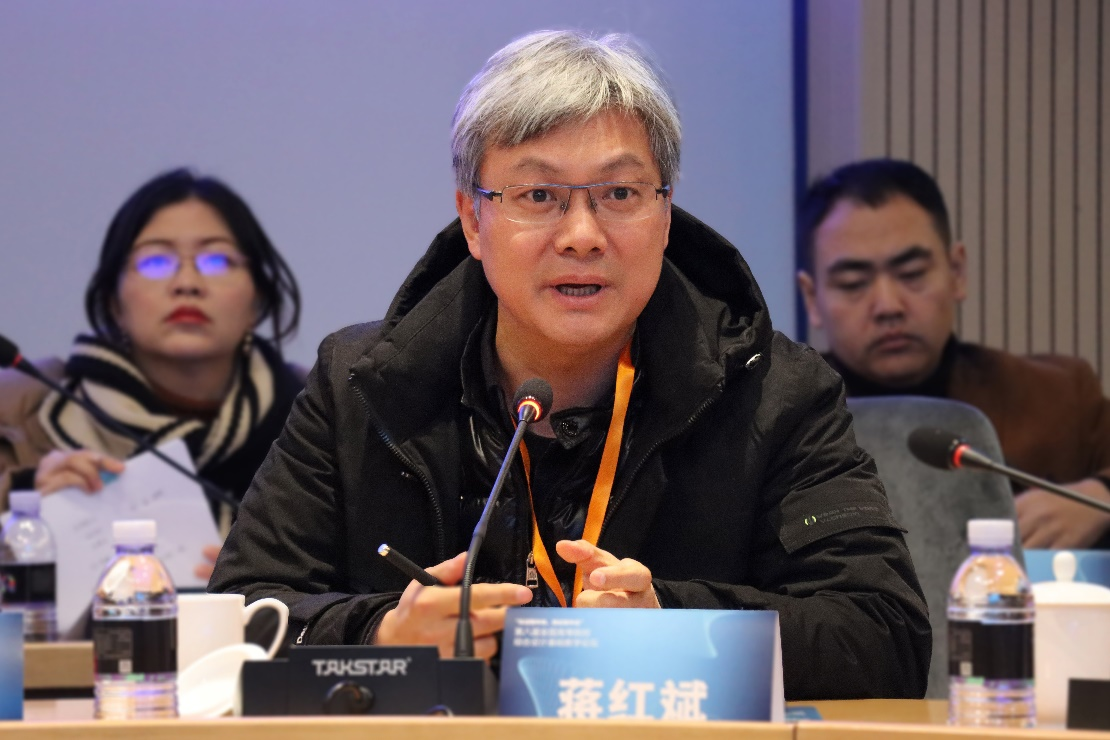
Professor JIANG Hongbin, Director of Design Strategy and Prototype Innovation Research Institute, Art & Science Research Center, Tsinghua University, presided over the opening ceremony and delivered a speech. First of all, he extended a warm welcome to the experts and teachers participating in the 8th National Forum on Integrated Design Foundation Teaching in Colleges and Universities. He mentioned that the Forum is a national teaching symposium with a main focus on front-line teachers. It has been held for nearly a decade, with the number of participants increasing annually, making it an important communication platform in the field of design education. He emphasized that design was rapidly developing and constantly changing in China, and teaching should be forward-looking and lie in summarizing and practicing. He encouraged teachers to bravely express their views, which is also what the Expert Working Committee works for.
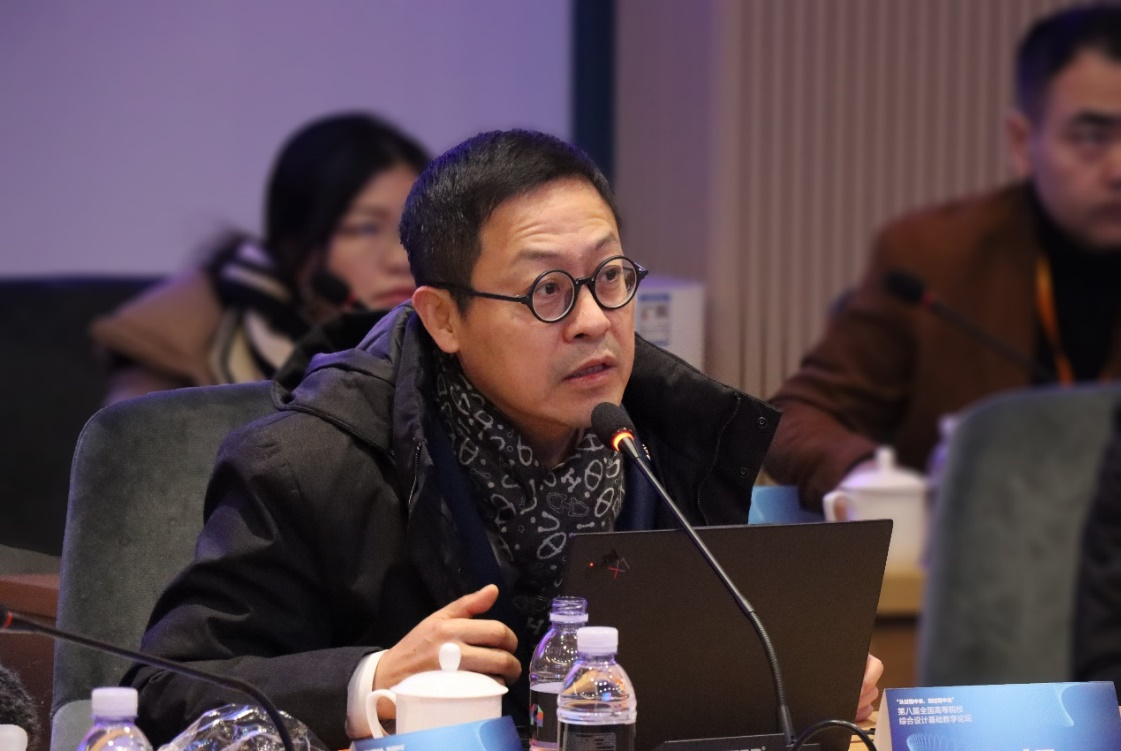
ZHAO Chao, Vice Dean and Professor of the Academy of Arts & Design, Tsinghua University, and Vice President of TASA, emphasized the importance and value of design in the era of AI in his keynote speech. He said that especially in the backdrop of constant updating of technology and knowledge, the interdisciplinary nature of design becomes particularly significant. He proposed that in design education, it is necessary to reflect on its core values and invariant elements and adhere to these principles in teaching reform.
He shared Tsinghua University's experience and achievements in design education, especially the Joint Training Program for Graduates in Global Innovative Design. This Program integrates the advantageous resources of design and cultural industry centers in Asia and Europe, aiming to cultivate international talents with high-end comprehension, creativity, and knowledge integration capabilities. Professor ZHAO also mentioned the three main aspects of design education: design research, design teaching, and design practice. He highlighted that design education should develop students' ability to solve uncertain and complex problems in the real world, as well as their non-verbal innovative thinking and communication skills. In conclusion, Professor ZHAO put forward the vision of building an international alliance network for cultivating global innovative design talents, and emphasized China's contribution and wisdom in global design education, hoping that these efforts would cultivate design innovation leaders with global perspectives.
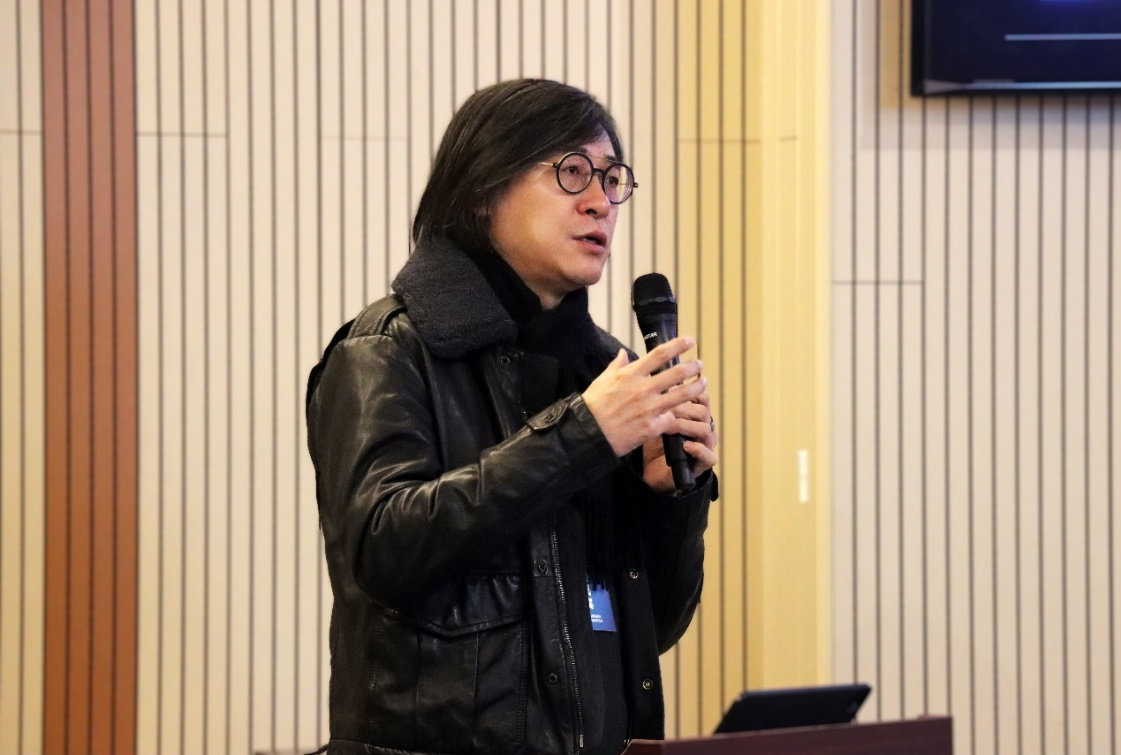
ZHANG Ming, Dean and Professor of the School of Industrial Design, Nanjing University of the Arts, shared the school's exploration and practice in educational transformation and interdisciplinary integration in his speech. He emphasized the importance of students growing from design enthusiasts to professionals with essential skills and literacy in the industry during the educational process and discussed challenges faced by teachers amid technology and paradigm shifts. Mr. ZHANG also introduced some specific practices of the School, such as geometric aesthetics education, instruction on the relationship between body and space, and preliminary design courses, for cultivating students' creativity and practical skills.
II. Keynote Speech Themed on Focusing on Process
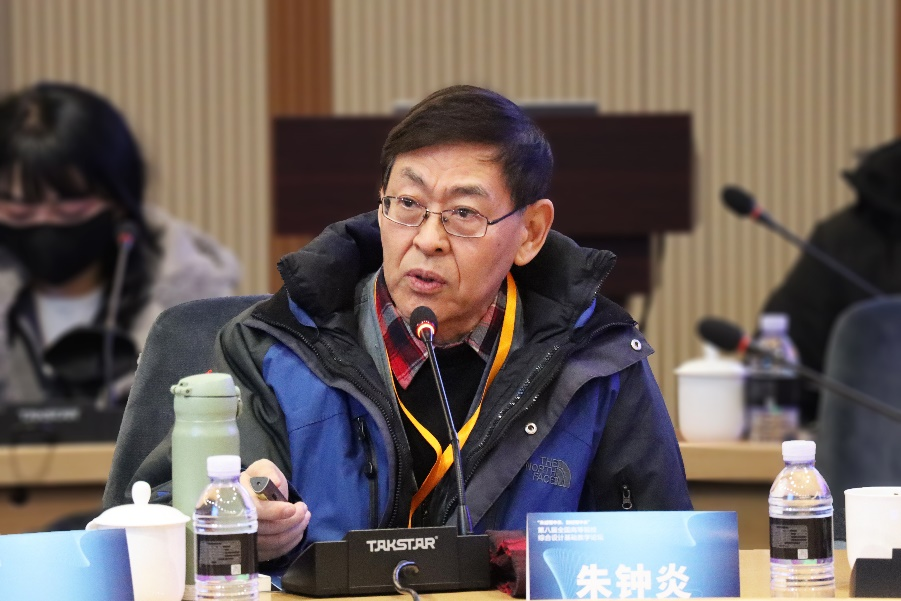
ZHU Zhongyan, Professor of the College of Design and Innovation, Tongji University, delved into the importance of design foundation theory education in his keynote speech. Professor ZHU proposed that design is the process and result of transforming needs into actual procedures or systematic provisions with specific characteristics and rules, involving classification and refinement, and systematicity and individualization. He pointed out four aspects of creative thinking in design: observation, thinking, practice, and perception, integrating design foundation, design management, and brand design into teaching to cultivate a design mindset that adapts to social changes and all-around development.
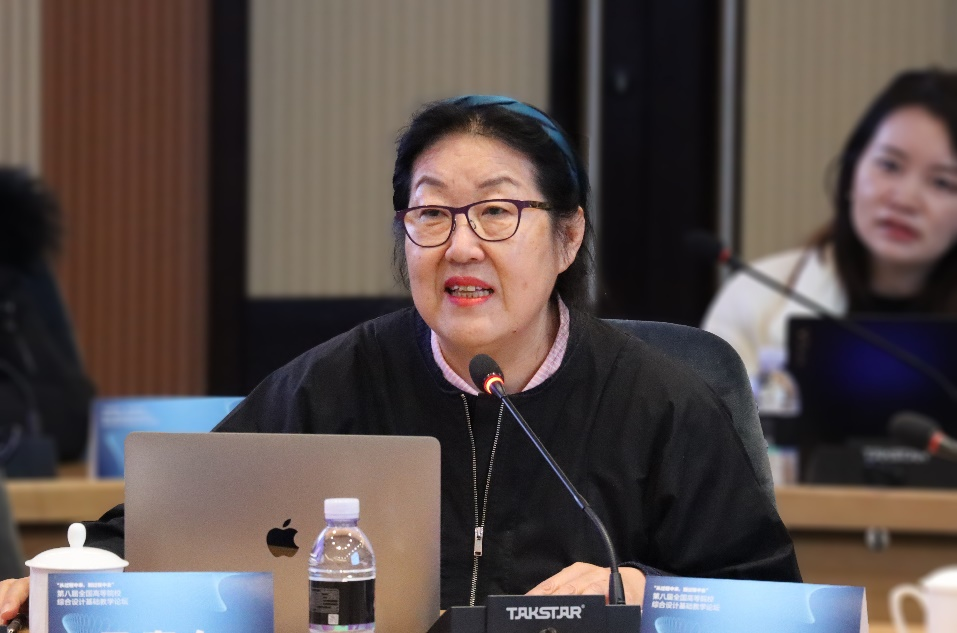
ZONG Mingming, Dean of the School of Design and Arts, Beijing Institute of Technology, Zhuhai, emphasized that design education should develop problem-solving abilities and wisdom, and integrate knowledge from different disciplines in her speech. She mentioned that design foundation is the core of the design discipline, covering a wide range of aspects such as form, mechanism, skill, technology, material, structure, and craftsmanship, and highlighted the flexibility and diversity of design foundation education. She advocated that design education should pay attention to issues of human survival and development, and shared her insights and expectations for the future development of design foundation teaching.
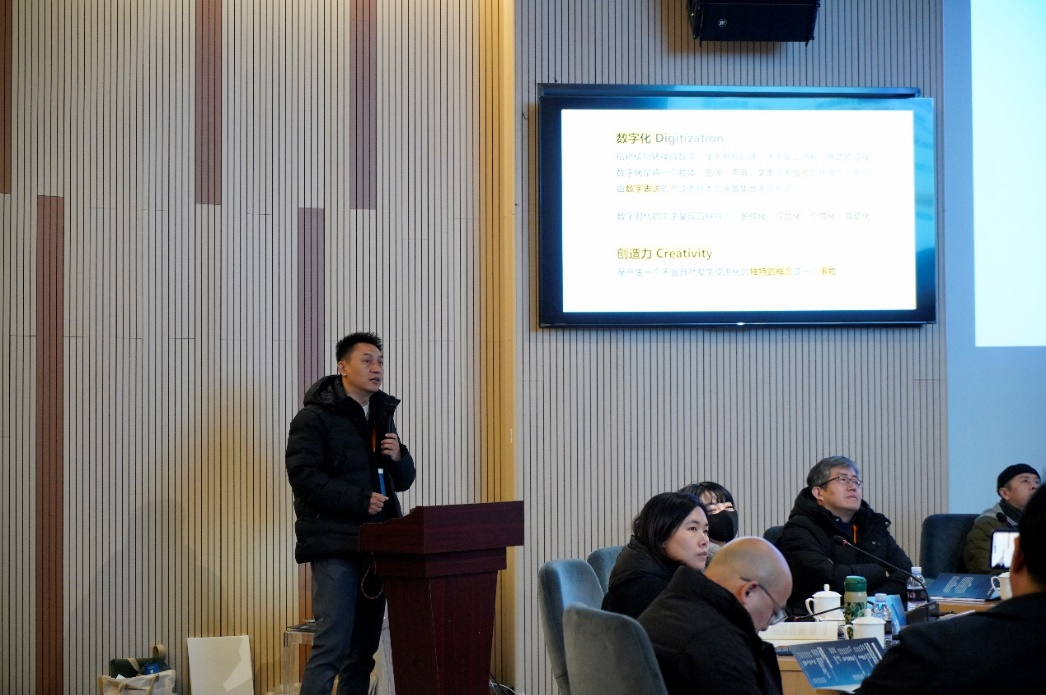
YANG Jidong, Professor of the School of Creativity and Art, ShanghaiTech University, introduced the School's teaching philosophy and training program in his keynote speech. He pointed out that ShanghaiTech University is committed to cultivating designers who can adapt to the future digital era, take product design and product service as the core of their competence, and expand their abilities to business models and social impact. The curriculum is designed to develop students' narrative abilities, technological understanding, and emotional construct, as well as the ability to think critically about human and technological emotions and sustainability in society. Furthermore, he mentioned the need for students to understand the interaction between technology and society, and how technology changes behavior and domesticates humans. He emphasized the new opportunities for design education in the digital age, particularly the importance of digitalization and creativity.
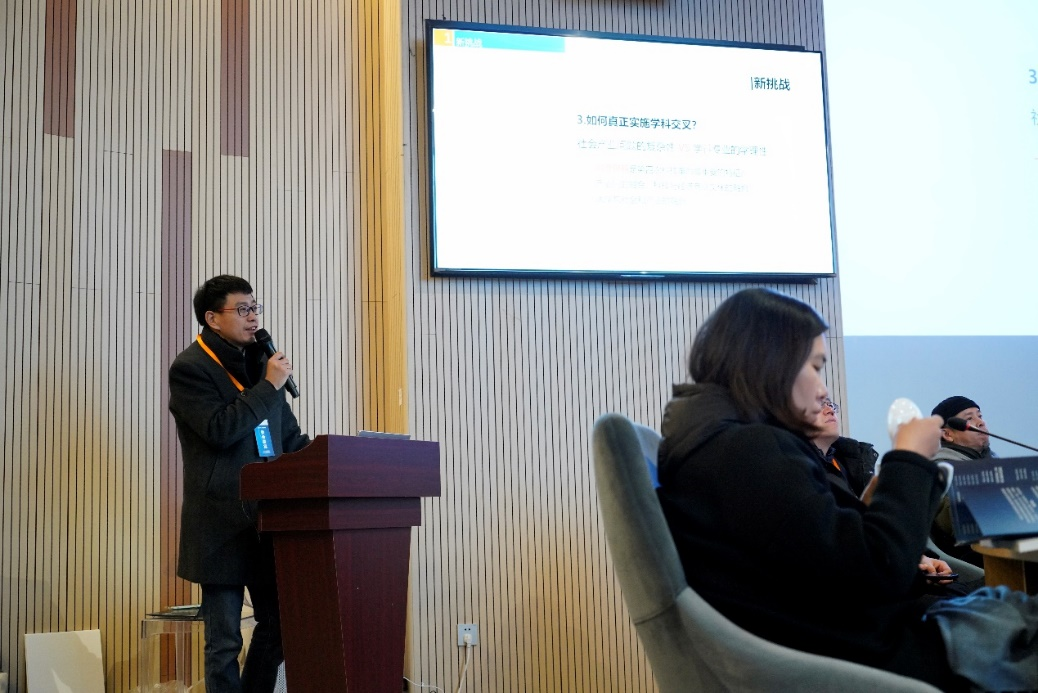
WU Zhijun, Professor and Vice President of the Hunan Institute of Engineering, shared his thoughts on teaching in his keynote speech. He emphasized that in the current context, how to better integrate the education, industry, and innovation chains to cultivate talents that meet the demands of the times is an important and urgent topic to be addressed. Professor WU also shared his learning and education paradigm beyond disciplines and introduced how to respond to the challenges of industrial changes and students' career development through innovative and entrepreneurial education models. He pointed out that design education should focus on developing students' vision and exercising their ability to solve complex problems. At the same time, innovation capacity must be implemented in the industry and innovation chains to realize the application of creativity.
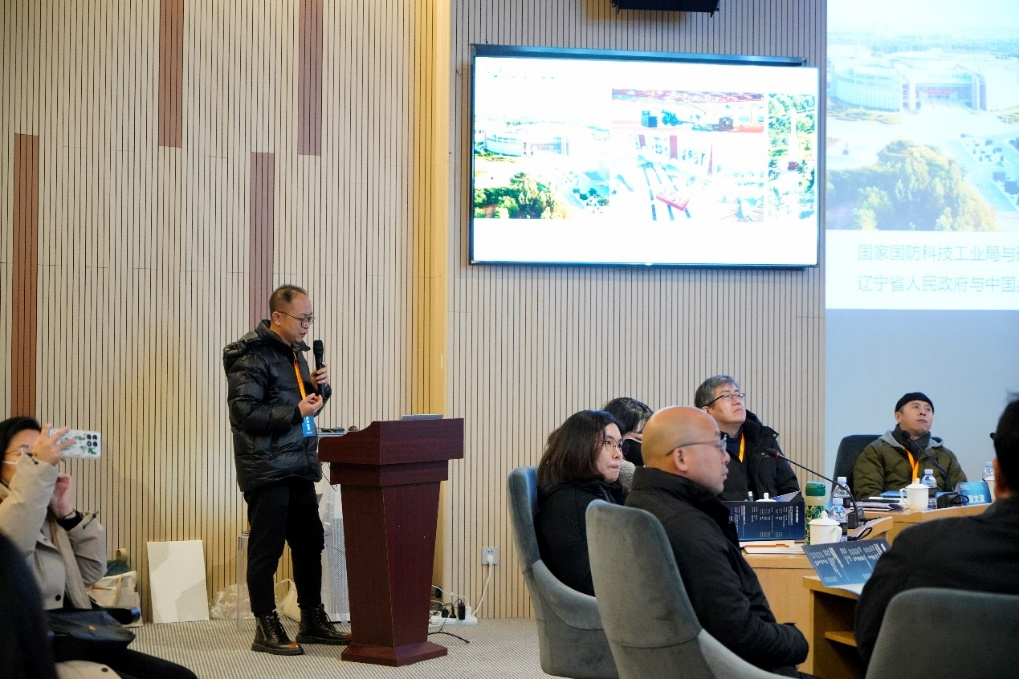
CHEN Feng, Professor and Vice Dean of Art and Design College, Shenyang Ligong University, shared the College's distinctive development path in the University in his keynote speech. Professor CHEN emphasized the efforts made by the College in promoting the culture and characteristics of the military and industry and introduced the College's exploration in terms of major settings, teaching reforms, and connections with enterprises. Prof. CHEN also introduced the College's cooperation and exploration in VR and military cultural and creative products, as well as future development plans such as setting up industrial colleges and co-building 3D printing factories.
The above keynote speeches have outlined a clear blueprint for the future development of China's design education from a far-reaching perspective. They have pointed out the way forward and laid a solid foundation for cultivating more design talents with innovative spirit and practical ability.
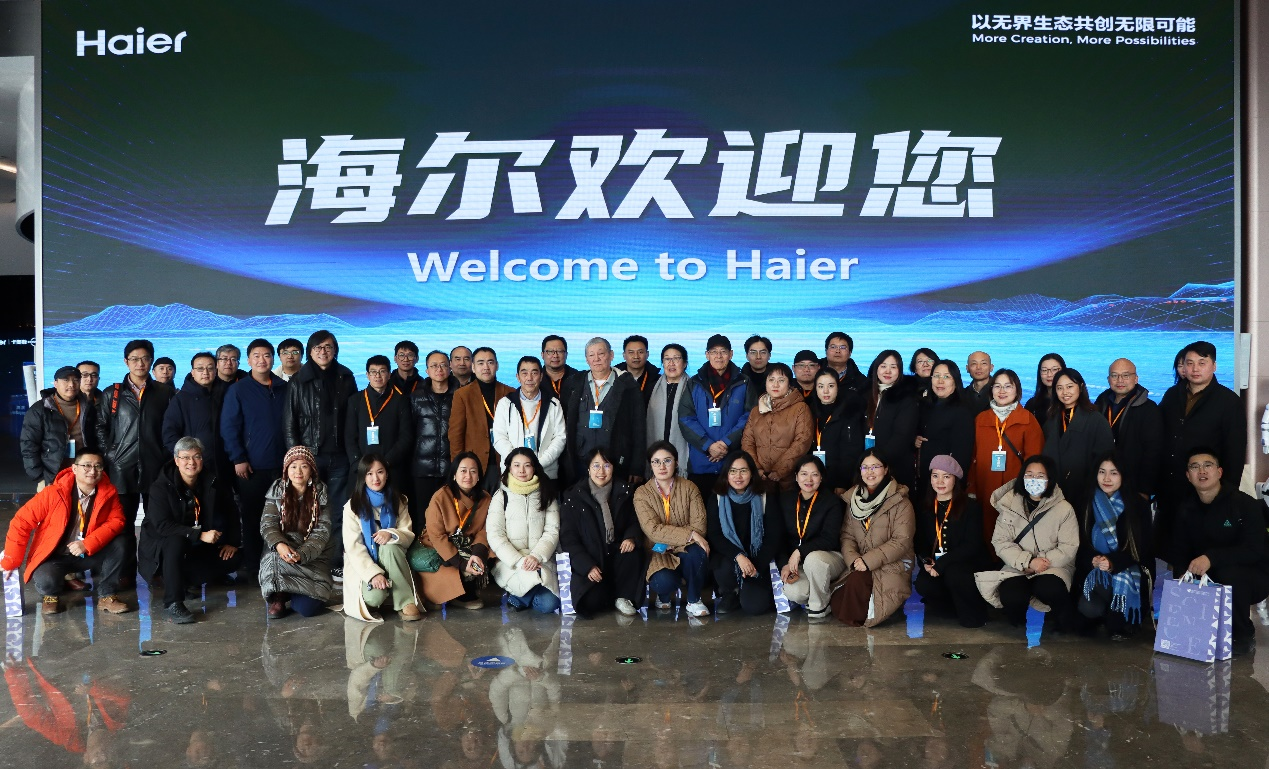
In the afternoon of December 21, the participating experts and scholars visited the Qingdao Haier Design R&D Center and engaged in basic seminar activities.
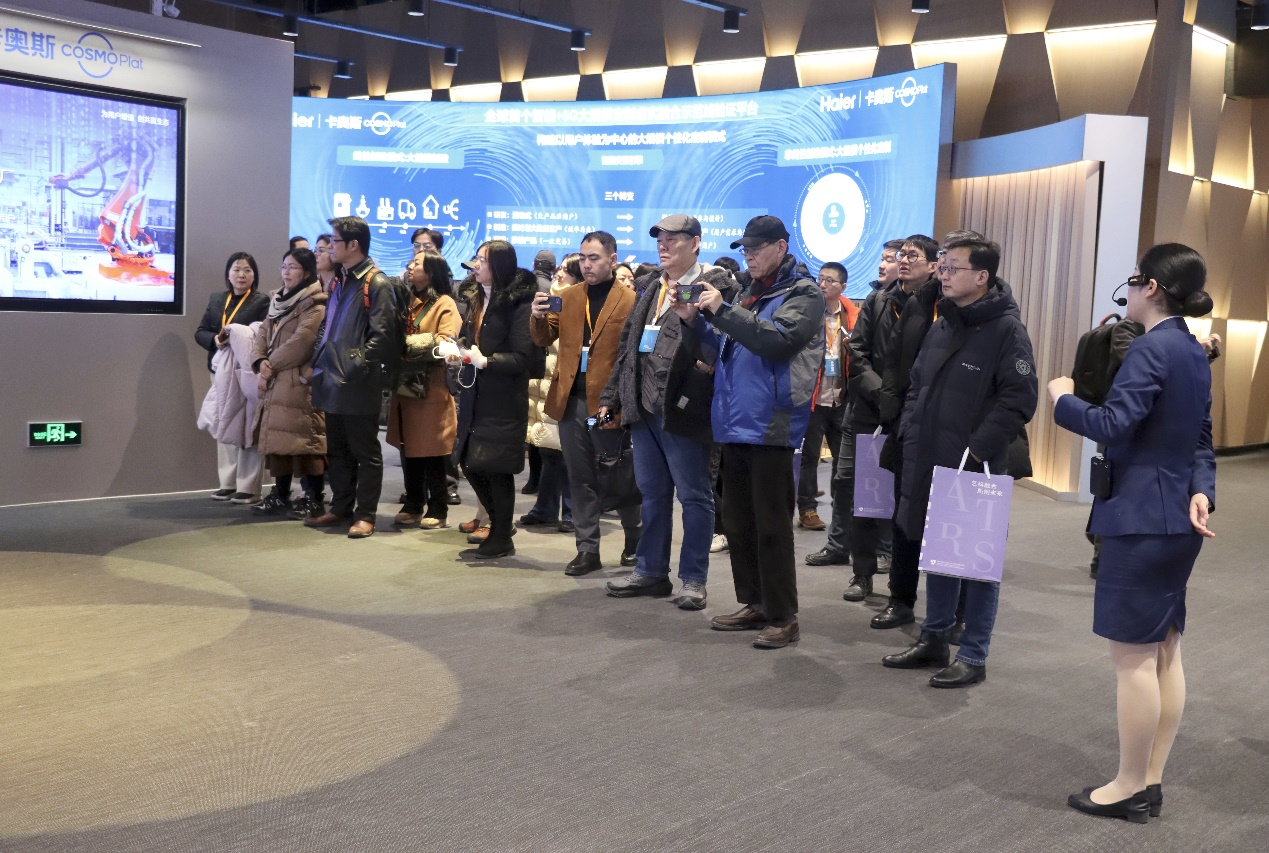
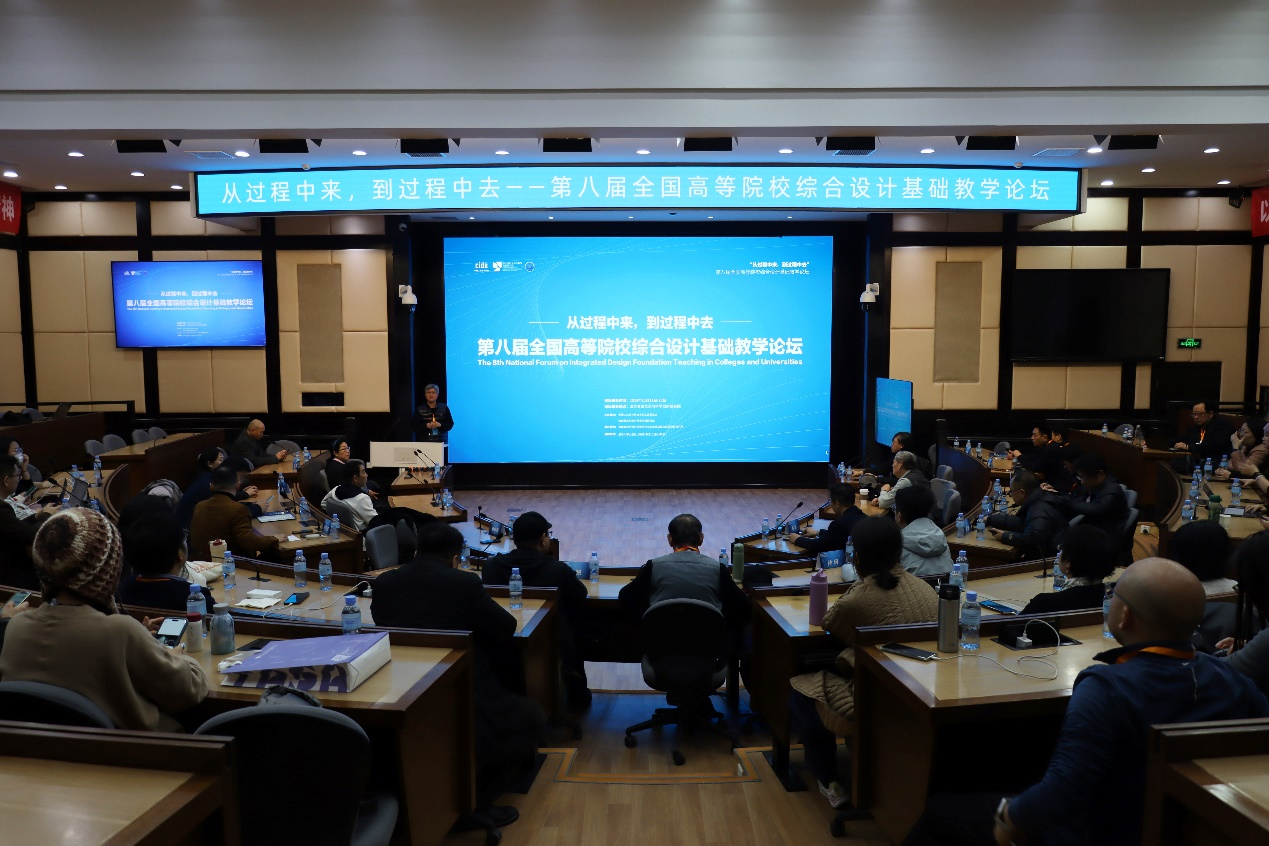
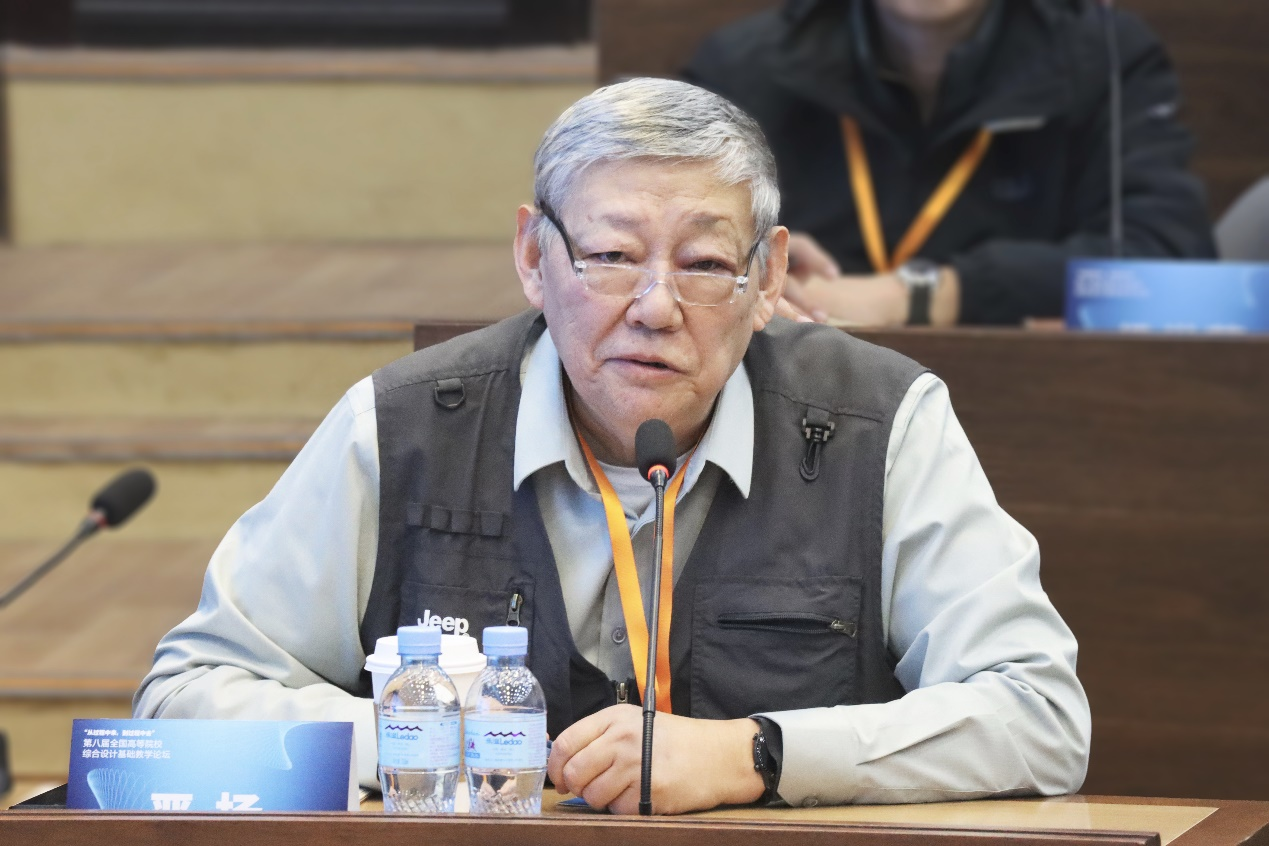
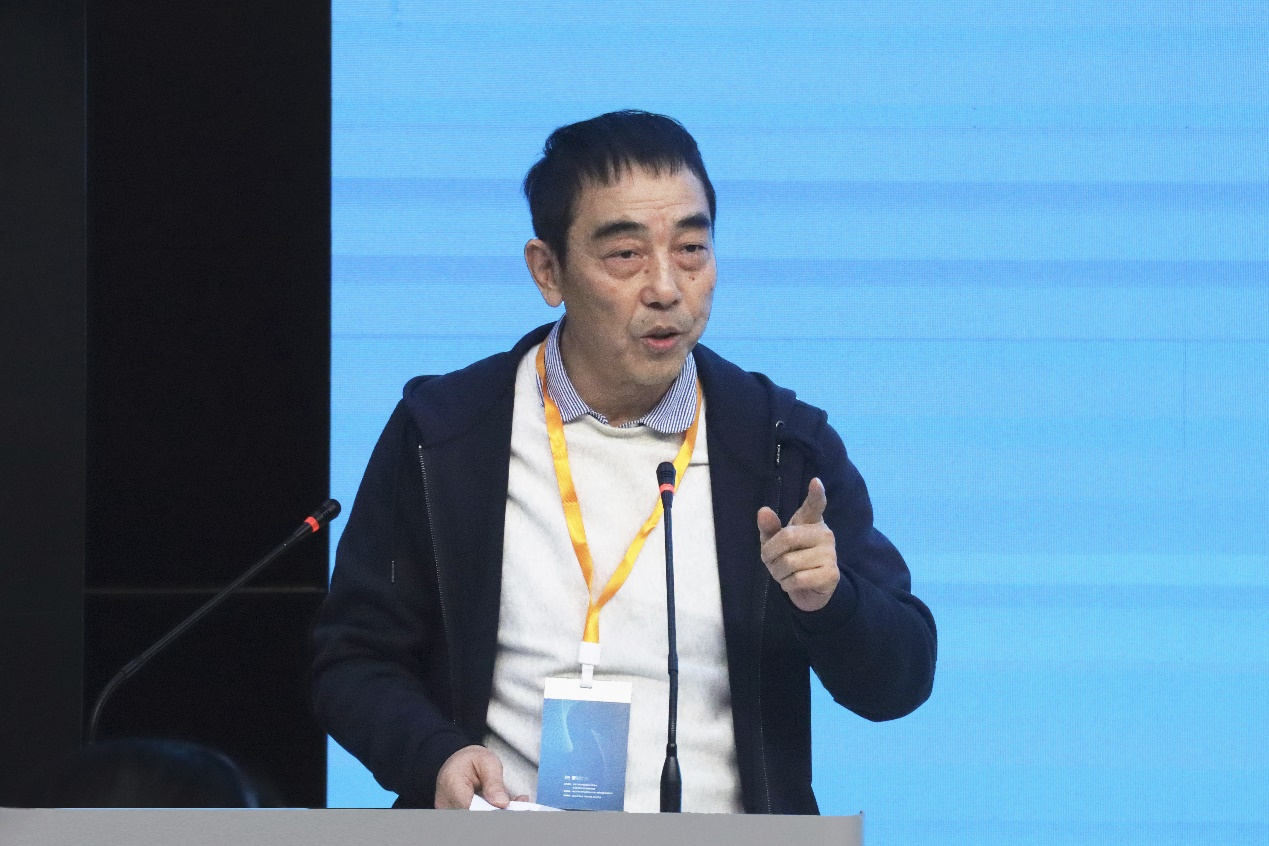
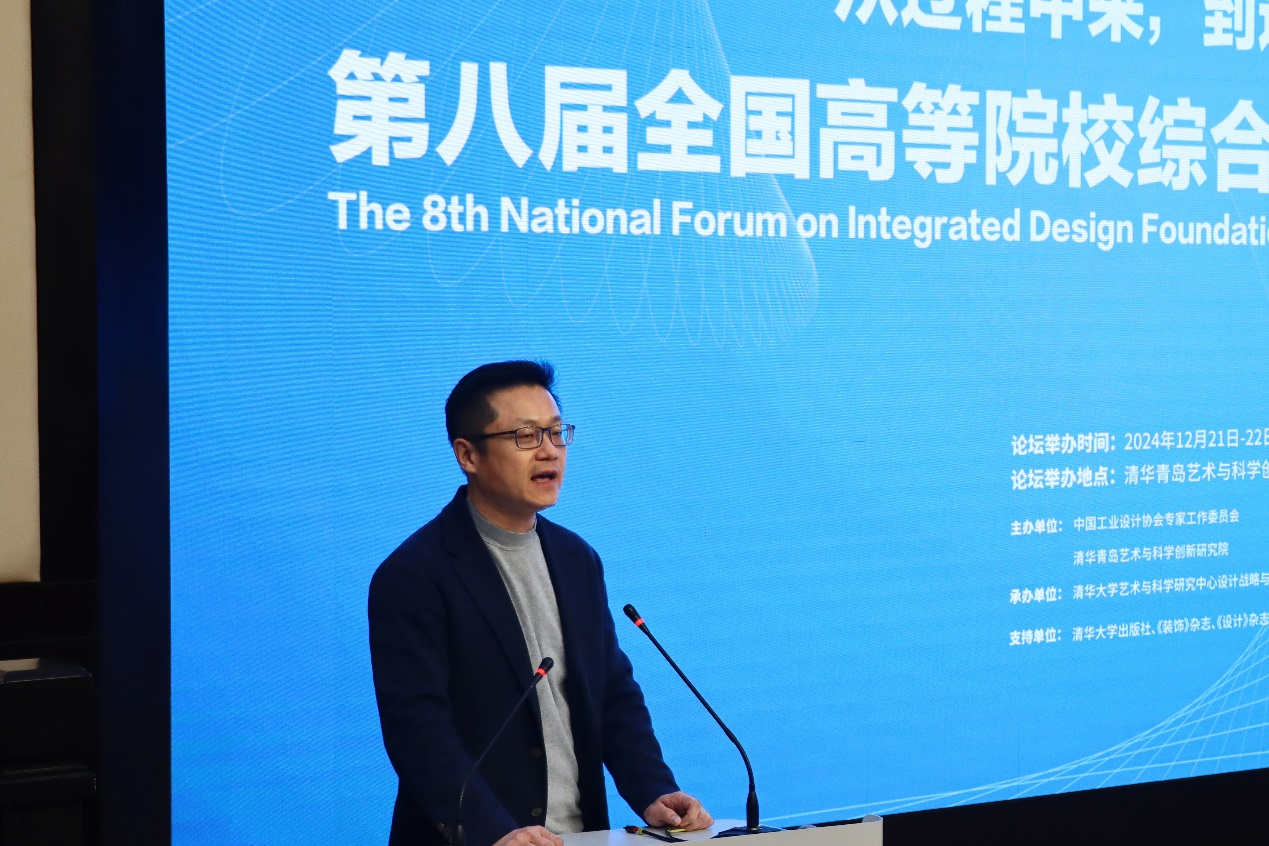
III. Concurrent Forums
On December 22, TASA successfully held two concurrent forums for facilitating in-depth exchanges between frontline design teachers and experts with rich teaching experience. These two concurrent exchange forums were characterized by a vibrant atmosphere, offering a platform for extensive interaction and sharing.
Concurrent Forum I: Exploring the Integrated Design Foundation Teaching in the Era of New Quality Productive Forces
This parallel forum is aimed at discussing and exchanging innovative teaching methods and explorations of integrated design foundation in the era of new quality productive forces, which is marked by the rapid development of artificial intelligence.
Comment Experts:
Several experienced professors were invited to share their viewpoints, including: YAN Yang, Professor of Academy of Arts & Design, Tsinghua University; ZHU Zhongyan, Professor of Tongji University; ZHANG Ming, Dean of the School of Industrial Design, Nanjing University of the Arts; LYU Jiefeng, Dean of the School of Art and Design, Wuhan University of Technology; YANG Jidong, Professor of ShanghaiTech University; and CHEN Feng, Vice Dean of the Art and Design College, Shenyang Ligong University.
Concurrent Forum II: Upgrading the Integrated Design Foundation Teaching and Research through Interdisciplinary Integration
This parallel forum aims to explore the innovation of research on teaching and learning of integrated design foundation under an interdisciplinary background.
Comment Experts:
Experts commenting on this concurrent forum included MA Chundong, Professor of Dalian Minzu University; ZONG Mingming, Professor of Beijing Institute of Technology; JIANG Hongbin, Director of the Design Strategy and Prototype Innovation Research Institute, Art & Science Research Center, Tsinghua University; and WU Zhijun, Dean of the School of Architecture and Design, Hunan University of Science and Technology.
The forum was successfully concluded in the afternoon of December 22. In this event, TASA, leveraging Tsinghua University's profound heritage and extensive resources in the interdisciplinary realm of art and science, is committed to actively promoting the deep integration and innovative development of art and science. On this platform, experts and scholars, industry elites, and students from diverse fields gathered together to conduct in-depth and comprehensive discussions on the core issues of design education, jointly advancing design education toward a more diversified and innovative future.
